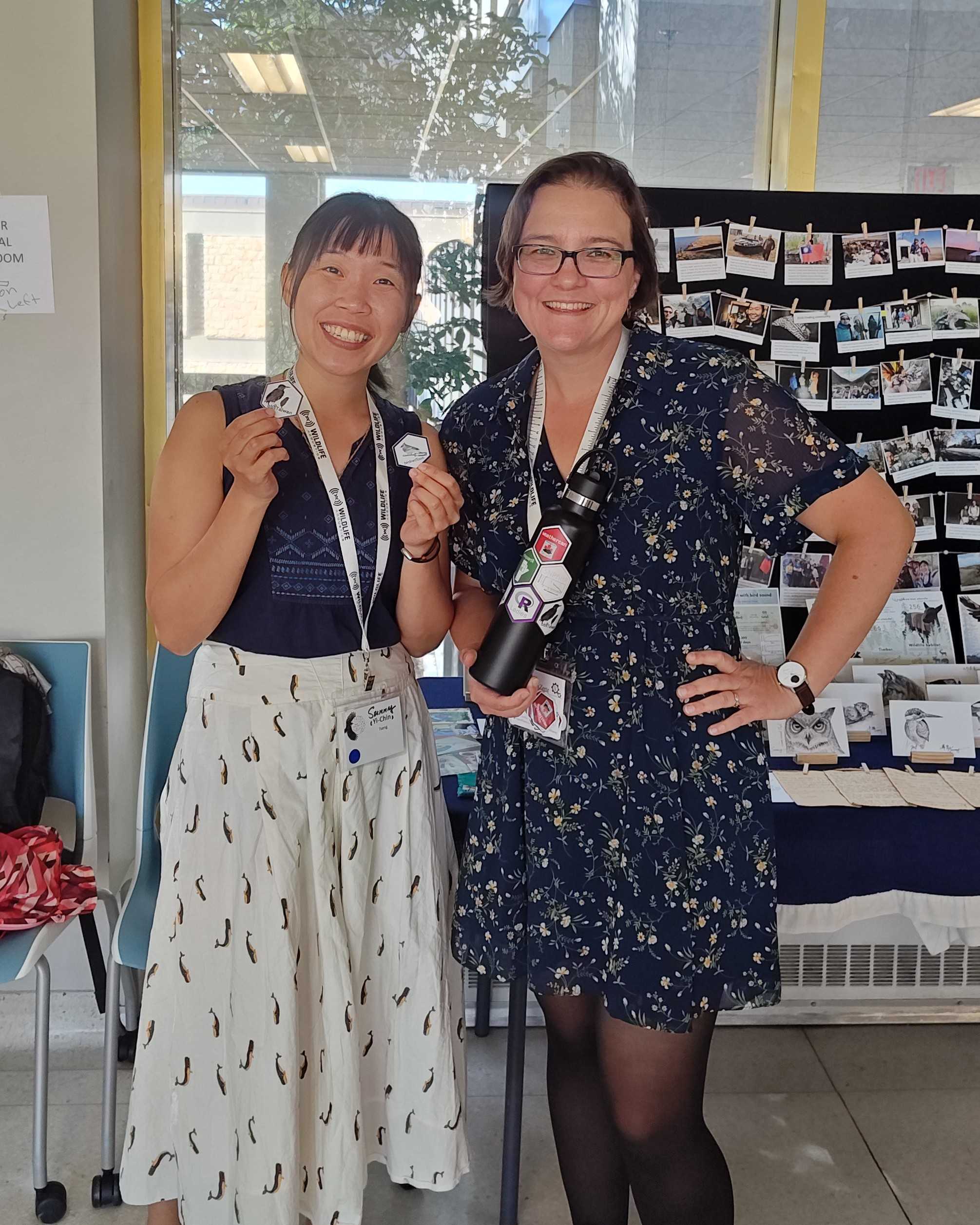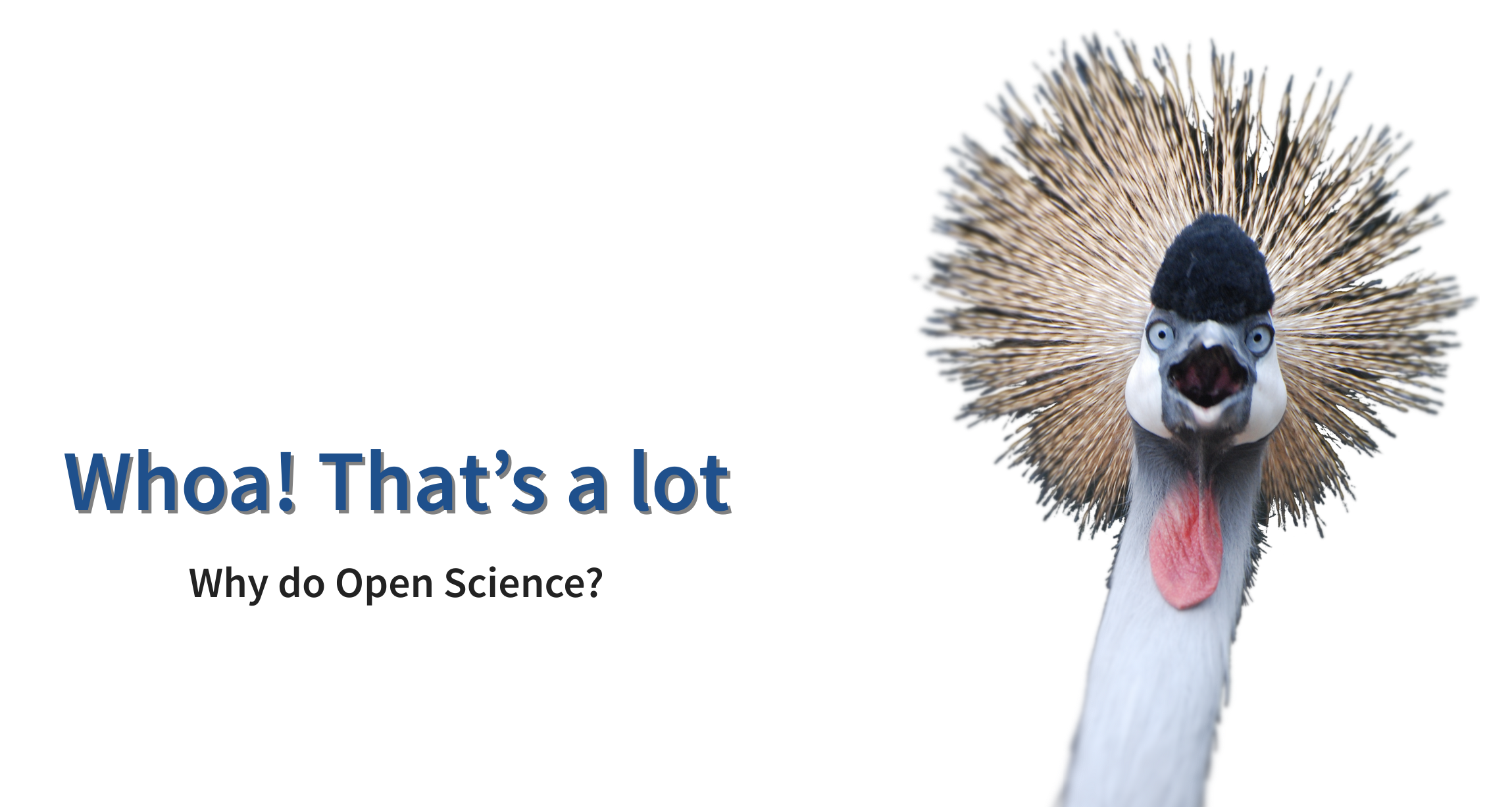Tuesday, September 23, 2025 From rOpenSci (https://ropensci.org/blog/2025/09/23/gentle-openscience/). Except where otherwise noted, content on this site is licensed under the CC-BY license.

Sunny and Steffi showing off their R hex stickers!
This summer I had a wonderful time attending the Society for Canadian Ornithologists meeting in Saskatoon, Canada. It was super exciting to run into Sunny Tseng, rOpenSci Champion and fellow ornithologist! It’s not often that I am able to run into both types of colleagues (R developers and ornithologists) at the same conference, so I cherish these experiences.
Back before I joined rOpenSci I started my professional career as a behavioural ecologist and ornithologist, studying the effects of urban noise and habitat on communication in Chickadees (Tits for the non-North Americans). While I’ve shifted into R consulting and supporting Yani here at rOpenSci with our amazing community, today I still work mostly for other ornithologists or bird-related conservation non-profits.
This means that the Society for Canadian Ornithologists is still very much my ‘home’ organization and I’m always excited to go to meetings and reconnect with my colleagues. But ornithology conference or not, I always try to bring a bit of R, Open Science, and rOpenSci to the meeting .
In the past I’ve organized symposia on topics such as " R for Ornithologists: Perspectives from useRs to programmeRs (to birdeRs)" or " How can ornithologists find R packages?", and have helped run workshops on R packages for ornithology (like bbsBayes2).
This year, I felt like I should branch out a bit beyond R and decided to talk about " Practical tips for Open Science in Ornithology". My goal was encourage ornithologists (or other scientists) to give Open Science a try. To realize that it doesn’t require a background in Computer Science, or buckets of money! And because ornithology has many scientists already working with open data, open methods, and open science, to share some ideas for how to they might encourage more of their colleagues to join in.
For the rOpenSci community, this may feel very much “back to basics”. The conversations we have are more often about how can you be better at open science? How can you make that study completely reproducible? How can we improve open code quality1?

Slide acknowledging that open science can be challenging
(Grey-crowned crane - Kuribo, CC BY-SA 2.0)
But I think we sometimes forget that in addition to time, skills, and sometimes funding, to practice open science takes a great deal of courage2.
For those just getting started (like students), or those without open science support (like researchers at small institutions), practicing open science can seem overwhelming and extremely intimidating. It’s scary to think about the criticisms if you don’t “do open science right”, or the consequences if you make a mistake.
I wanted to focus on baby steps, to make it clear that it’s making the effort that’s important, not getting it perfect!
So in addition to some practical advice, I gave four general tips:
- Be kind to yourself
- You’re allowed to smart small and grow!
- On every project, try to expand your skill set, learn one more new thing
- Mistakes happen, just remember that by practicing open science, you’re already awesome!
- Find your community
I think the best thing about giving this talk, was the number of students who approached me afterwards, excited (and nervous) to start sharing their code online. Full of questions from practical ones about using GitHub to general ones about how ‘good’ your code needs to be to be shared. My answer to this last question was “If you used it, share it. (But annotate like mad!)”
What are your favourite tips for encouraging open science?
🔗 Acknowledgements
Thanks to Alex Koiter for ideas and brainstorming for my talk, as well as for his awesome (and much longer) talk, Open and Reproducible Soil Science.
Trisovic A, Lau MK, Pasquier T, et al. A large-scale study on research code quality and execution. Sci Data 9, 60 (2022). https://doi.org/10.1038/s41597-022-01143-6 ↩︎
Insecurity: Gomes DGE, Pottier P, Crystal-Ornelas R, et al. Why don’t we share data and code? Perceived barriers and benefits to public archiving practices. Proc Biol Sci 289(1987):20221113 (2022). https://doi.org/10.1098/rspb.2022.1113 ↩︎

